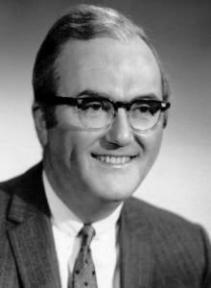 Eli Mason, past president of the New York State Society of Certified Public Accountants, known as the “conscience of the profession,” died in August, 2009.
Eli Mason, past president of the New York State Society of Certified Public Accountants, known as the “conscience of the profession,” died in August, 2009.
The New York Times wrote that Mason “was a longtime defender of small and midsize accounting firms and a traditionalist in a profession that slowly came to be dominated by huge firms like Ernst & Young and Arthur Andersen.
“Mr. Mason was an early voice warning that firms offering consulting services as well as pure accounting oversight would erode the independence of corporate auditing.”
(Gee, what could possibly go wrong with that?)
“‘In a career that spanned seven decades, Mr. Mason was not afraid to make his feelings known,’ said Bill Carlino, the editor-in-chief of Accounting Today, an industry publication. Mr. Mason wrote regularly for the magazine over the last decade. His last article, in June, was about the growing complexity of shareholder reports.
(Gee, what could possibly go wrong with that?)
“‘He argued tirelessly about accountability, and objectivity and independence in the profession,’ Mr. Carlino said. ‘He rankled people and not everyone agreed with him but people respected him because he was a purist.’”
“In 1946, he founded Mason & Company,” the Times wrote. In 1979, he helped found the National Conference of C.P.A. Practitioners, which consisted of 1,500 small firms, and became one of the profession’s most vocal critics of the big accounting firms, then known as the Big Eight. In particular he resented the practice he referred to as lowballing, or aggressively cutting prices, sometimes below cost, to attract new clients.
“He also spoke against the industry’s mergers in the 1980s, which reduced the number of major firms to five, and he was critical of large firms that offered consulting services as well, fearing this would erode their independence from their clients. Many of his fears turned out to be justified later when the accounting scandals of Enron and WorldCom highlighted the cozy relationship between some of the world’s top accounting firms and the companies they were supposed to audit.”
So who has the integrity and grit to become the new Conscience of the Profession?
My vote goes to Cynthia Cooper, one of Time Magazine’s 2002 Persons of the Year, and former internal auditor and whistleblower of WorldCom.
Comments









